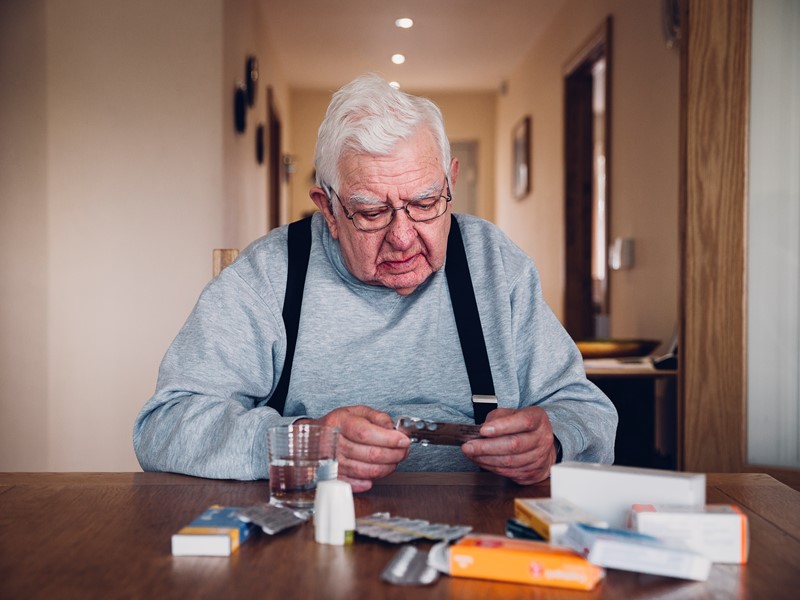What is hepatocellular carcinoma?
Liver cancer can be primary or secondary; primary liver cancers are cancers that originate from cells in the liver. Secondary liver cancers are cancers that originate from somewhere else in the body such as the bowel and then spread to the liver.
Hepatocellular carcinoma, commonly known as HCC, is the most common cause of primary liver cancer. HCC arises from cells in the liver called hepatocytes.
LWLC mainly focuses on HCC, however, if you are affected by another type of primary or secondary liver cancer please follow the helpful and informative links below.
Other types of liver cancer:
How does HCC occur?
The majority of HCCs arise in people who already have chronic liver disease or cirrhosis. Sometimes this liver disease is already known about, but at other times it can be discovered at the same time as the HCC is diagnosed.
Chronic liver disease leads to inflammation and scarring of the liver. In cirrhosis the liver is significantly scarred. In a scarred and injured liver, mistakes in cell repair are more likely to occur; this is how cancers start.
Common risk factors for HCC
- Alcohol - in the UK, cirrhosis caused by alcohol is the commonest cause of HCC.
- Obesity - obesity leading to cirrhosis is an increasingly common cause of HCC in the UK.
- Infection - worldwide, hepatitis B and hepatitis C are the commonest causes of HCC.
- Autoimmunity - autoimmune liver diseases such as autoimmune hepatitis and primary biliary cholangitis can also cause cirrhosis and HCC.
- Diabetes - an additional risk, especially in those who are obese or who drink.
- Smoking - an additional risk, especially in those who are obese or who drink.
- Genetic Haemochromatosis - a condition where a build-up of iron can cause damage to the liver. You can find out more about haemochromatosis here.
Symptoms and Diagnosis
Symptoms
HCCs often present with no symptoms as they start very small and then grow.
If a diagnosis of cirrhosis, or certain chronic liver conditions, is already known then it is likely that 6 monthly ultrasound scans, and possibly blood tests, are performed to try and identify early HCC. In those with no known liver disease HCC can be picked up when a scan is performed for other reasons.
As a HCC grows, it may cause symptoms such as
Weight loss
Tiredness
Jaundice (yellowing of the skin)
Itching
Pale stools
Dark urine
How is HCC diagnosed?
HCC may be picked up on surveillance scans in those with known liver disease or incidentally on a scan performed for another reason. Further investigation will be guided by the medical team but often requires further imaging. This can be in the form of a CT or an MRI scan.
Blood tests will also be performed to assess the function of your liver.
Sometimes imaging alone can be sufficient to make a diagnosis of HCC. Some patients, however, will also require a liver biopsy to make the diagnosis.
What are CT and MRI scans like?
These scans normally require a small needle (cannula) to be inserted in your arm to allow dye to be injected which helps determine the nature of the abnormality in the liver. Neither of these scans should cause any pain; occasionally patients can find an MRI scan claustrophobic and it can be noisy. Some patients cannot undergo an MRI as they have a pacemaker or certain types of metal work in their body; this should be discussed with your doctor if you have any concerns.
What is a MDT meeting?
All patients who are thought to have HCC should be discussed in a multi-disciplinary meeting (MDM, sometimes also abbreviated to MDT) which specialises in HCC; this may not be in your local hospital but everywhere in the UK will be covered by a specialist MDT.
In this meeting there will be several specialists present. This may vary slightly by region but normally includes surgeons, hepatologists (medical doctors with specialist knowledge of liver disease), radiologists, pathologists, oncologists and specialist nurses. The aim of this meeting is to ensure that the correct diagnosis is made but also to discuss the best treatment option(s) for each patient.
Will I need a liver biopsy?
You will require a liver biopsy if imaging alone is not sufficient to make a diagnosis of HCC. Some patients will also need a biopsy to confirm their diagnosis before undergoing certain treatments.
A liver biopsy enables a sample of liver tissue to be taken and examined down the microscope for evidence of cancerous cells. In most hospitals this is done in the x-ray department by specially trained staff. An ultrasound scan is performed first to identify the area of abnormality and to ensure it is safe to biopsy this site. The skin overlying the liver is then cleaned and injected with local anaesthetic (numbing agent). A long needle is then inserted through the skin and a sample of liver tissue is taken from the abnormal area of liver.
What are the risks associated with a liver biopsy?
The exact risks quoted may vary slightly between different hospitals but include:
Pain - around 1 in 3 patients experience some pain or discomfort at the site of the biopsy. This is normally managed with simple painkillers and settles over a couple of days.
Bleeding - there is around a 1 in 500 risk of significant bleeding from the biopsy site as the liver contains lots of blood vessels. This is normally closely observed for and, if detected, may simply require observation but may require a blood transfusion or further scans where intervention can be offered to treat the bleeding (angiography).
Damage to other organs - there is a very small risk (around 1 in 1000) of damage to adjacent organs including lung, bowel or a bile duct. This is rare and again may just require observation but can be serious and need intervention to treat.
How long will I live?
How long a person with HCC will live depends on a number of things. Your doctors and nurses will talk about ‘the stage’ of your cancer. This means how big it is, how many tumours there are and if it has spread outside your liver. These things influence the treatments people can have. Equally important though, is how fit you are, how good your liver function is and what other medical conditions you have. These also influence treatment choices and how long you will live. It is very important to try and avoid a treatment that might make these other things worse, as this might shorten how much longer you live.
Generally speaking, people with earlier stage cancers tend to live the longest. These people have the chance of being cured, with surgical treatments that remove the cancer, or ablation treatments that destroy it, even if it isn’t removed.
For people with intermediate stage cancers, we often offer arterial treatments like TACE. People live an average of 2-3 years, with some being cured and living longer if they are quite fit and respond well.
People with advanced cancers can also live for more than a year, especially if they are fit enough to have medical oncology treatments. There are newer treatments coming along and people who respond well to these can also live for quite a lot longer.
People who aren’t fit live longer if we support them as best we can and look after their liver function. Even without treatment, people can live for a year or so. People with poor liver function who feel unwell with their cancer often live less than 3 months.
For all of our patients, regardless of your ‘stage’, we believe that if we can keep you active and eating and drinking the right things, you will live longer.








